Dr. Isaac Chang has always been interested in biomedical engineering, but it wasn’t until he saw his ECG displayed on an oscilloscope using a circuit that he built that he got truly hooked on physiological sensing.
Rewind to Isaac’s graduate research, where he first set to work 13 years ago with Drs. Alex Mihailidis and Susanna Mak to develop a non-obtrusive, remote monitoring technology for cardiovascular health. Today he calls that device the ‘Smart Tile.’
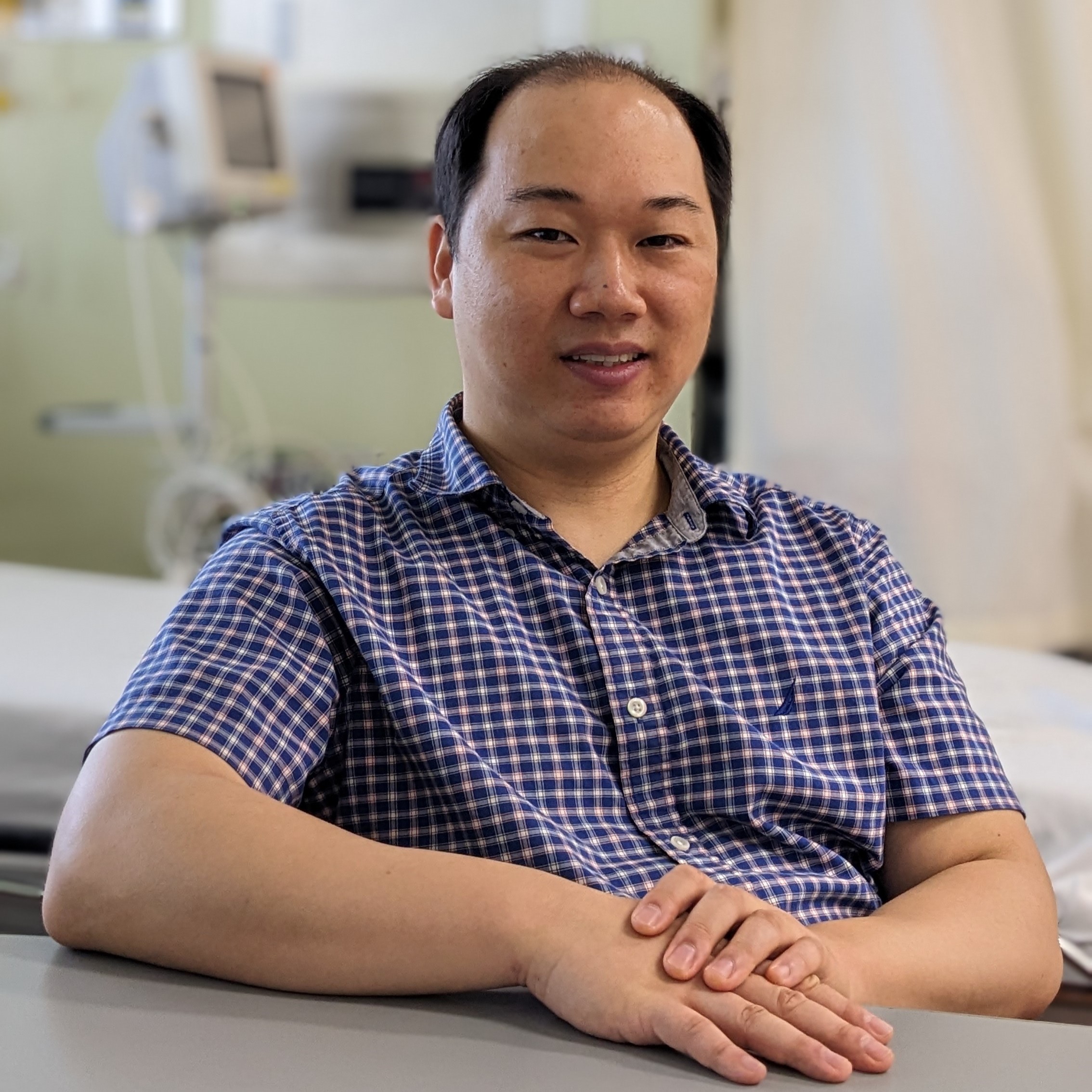
For people living with heart failure, self-monitoring and self-management are crucial to living well and staying out of hospital. Although technology can play a critical role in supporting at-home management, it doesn’t always pan out.
“People living with heart conditions may experience difficulties interacting with self-monitoring technologies for various reasons, including limited health literacy, cognitive impairment, or restricted physical function,” Isaac tells us, which could explain why one-in-five heart failure patients are re-admitted to hospital within 30 days. “Developing a device that eliminates these barriers to make remote monitoring and management as easy as possible is important.”
So just how easy is it for patients to use Smart Tile? So easy they can use it in their sleep… Literally!
Smart Tile consists of a set of four tiles that are placed under each bed leg. These tiles collect physiological data while the user sleeps to monitor heart function and alert clinicians, caregivers, and patients of any adverse events. But to understand how Smart Tile works, you must first have a basic grasp of the measurement method the technology utilises: ballistocardiography (BCG).
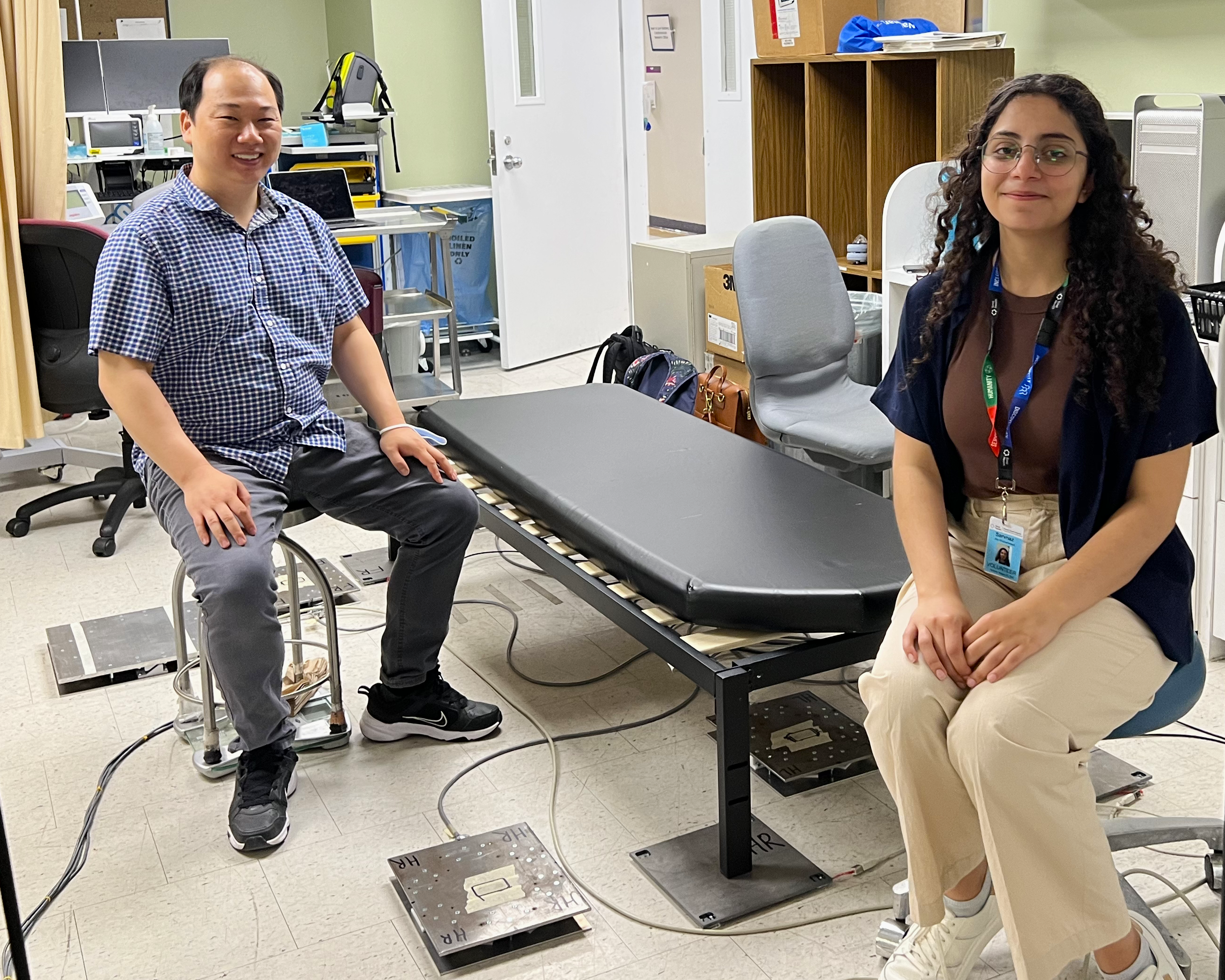
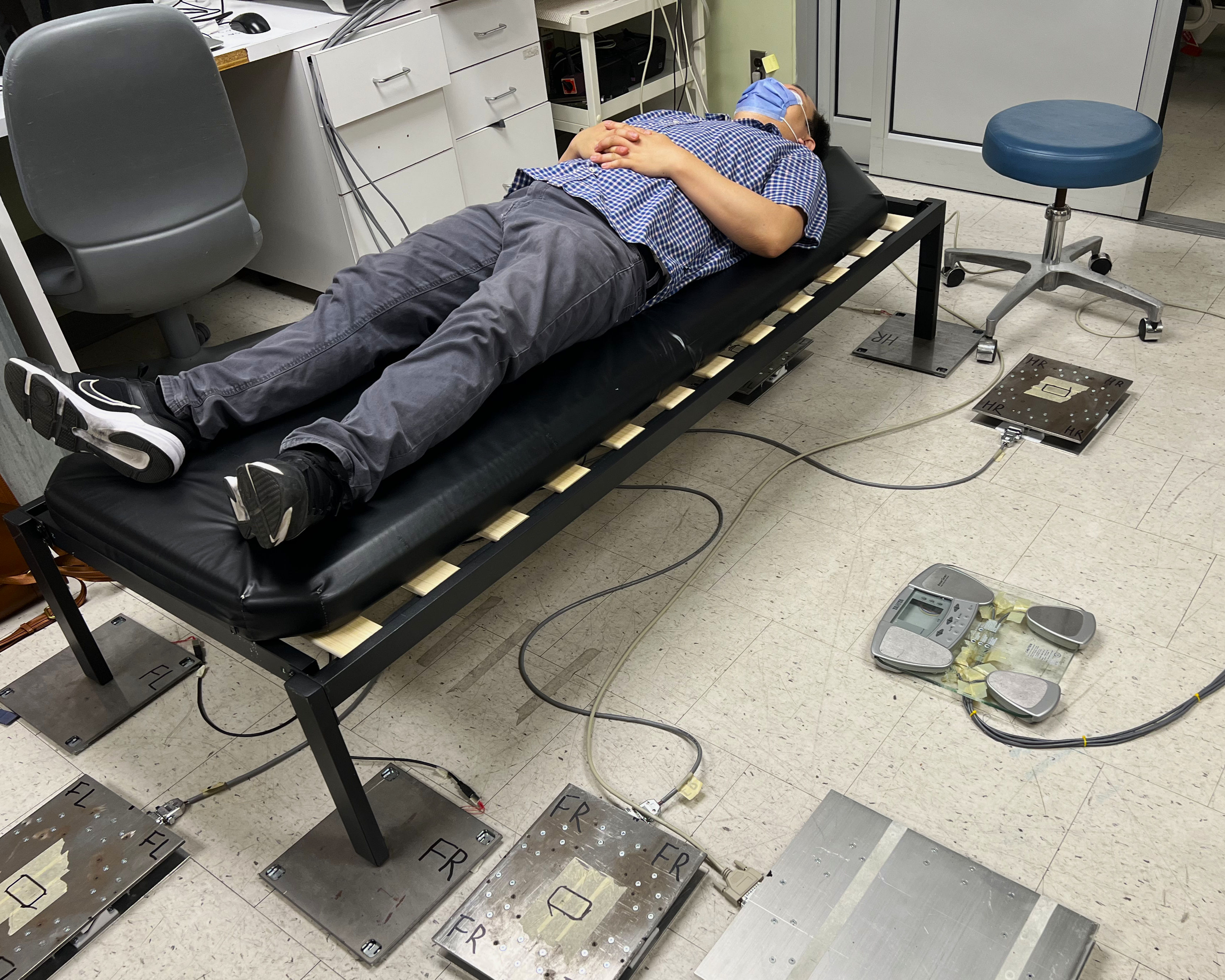
Isaac and his summer student, Sarvnaz Ale Mohammad, demonstrate how Smart Tile works.
Each heartbeat represents a cardiac cycle, during which the heart first relaxes and refills with blood (diastole) and then rapidly contracts and ejects blood (systole). In accordance with Newton’s third law (for every action there is an equal and opposite reaction), there is a resulting ballistic force generated by the ejection of blood at each cardiac cycle. BCG is a non-invasive method to measure this force and thus provide insight into heart function.
“This means that your weight isn’t actually static; if you have a very accurate scale reading with multiple decimal places, you can actually see the last digits oscillate in response to the cardiac cycle,” says Isaac. These miniscule variations in weight are precisely what Smart Tile has been designed to measure, gathering insight into biomechanical properties such as cardiac output and contractility – even through the thickest mattresses. The team is also exploring if BCG can be used to interpret pulmonary artery pressure (PAP), which is a powerful indicator of impending decompensation. At present, PAP is only able to be measured through implantable devices.
Ever since competing in the ECHO program and placing as a finalist in the 2022 ECHO Pitch Competition, Isaac and his team have been pursuing the commercialization of Smart Tile through his startup company Balliscor. Although it’s early days for Balliscor, Isaac tells us the team is very excited about the direction they’re headed in, which includes commercialization of Smart Tile within the next five years.
“As I become more and more engaged in the project, it just gives me more confirmation that I am on the right path.”
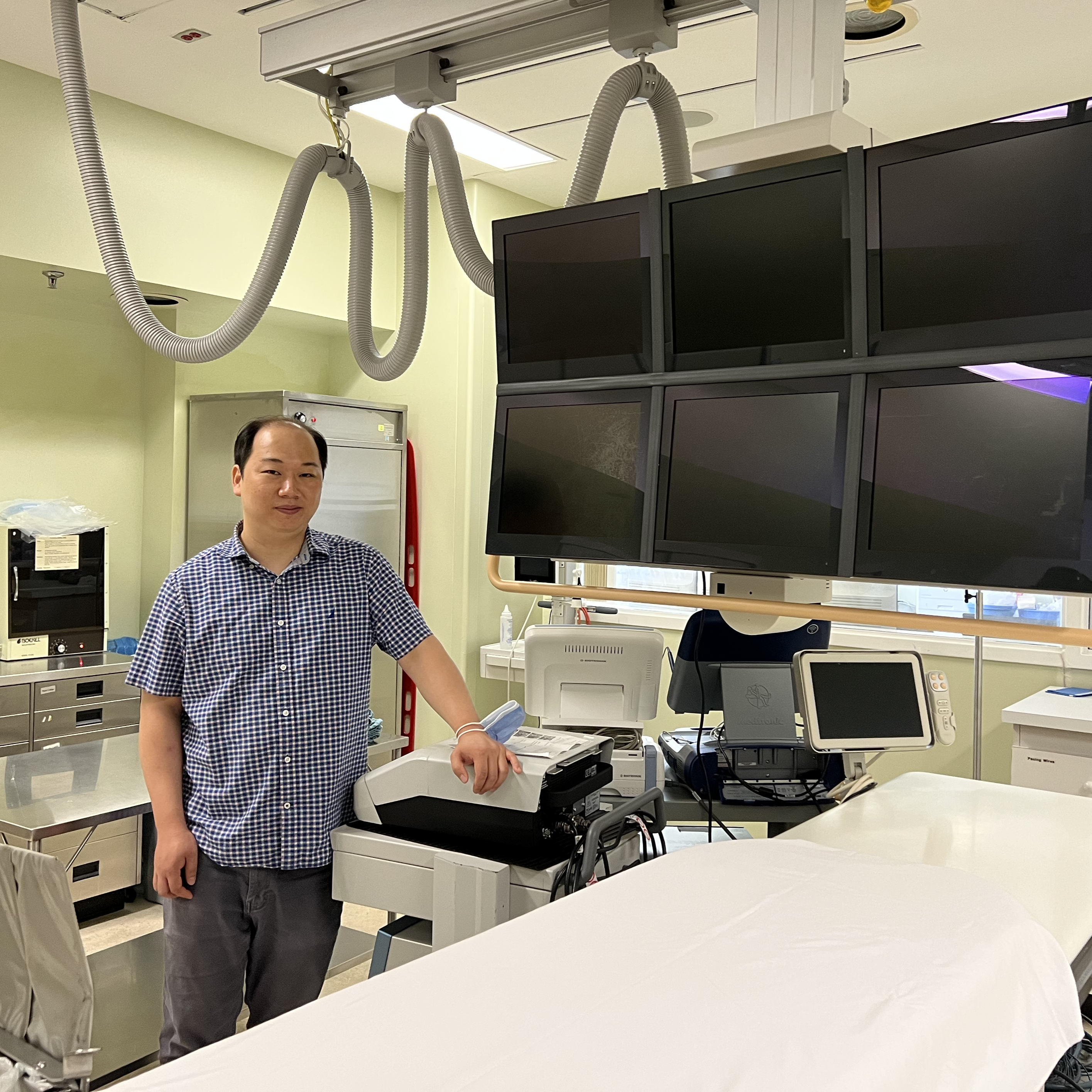
Isaac in Mount Sinai Hospital’s Cardiac Catheterization Laboratory, where patients undergo pulmonary artery catheterization.
“To my knowledge, we are the only group in Canada who are using BCG in the clinical domain for remote monitoring,” says Isaac. Though other groups in the United States and Europe are working on similar applications, none are diving quite as deep into clinical measurements as Smart Tile. “While other products measure basic vital signs like weight and heart rate, we are validating Smart Tile against the gold standard for invasive hemodynamic monitoring – the pulmonary artery catheter.”
In addition to its accuracy, Smart Tile is completely unobtrusive – this means no electrodes are needed, and patients can use the device fully clothed. By zeroing the physical and cognitive energy required to use the device, Isaac’s goal is that anyone can integrate Smart Tile into their care routine without instructions or barriers.
Smart Tile is also an economical solution. With an estimated cost of $1,000 per device, Smart Tile is a fraction of the price of the implantable CardioMEMS remote monitoring system (~$19,000). “We are currently looking at different avenues through which patients could get reimbursed to further increase accessibility of Smart Tile,” says Isaac.
When asked where his passion comes from, Isaac tells us that he sees great potential in Smart Tile. “The utility that this technology can provide to the patient population, to clinicians, to caregivers – I think it’s huge. And that’s what’s driving me to pursue this further.”
“It’s not just the funding aspect – the personal connections, the networks, the patient partnership that TRANSFORM HF has supported has been tremendously helpful to advancing our research.”
TRANSFORM HF is proud to support the work of Isaac and his team as they further develop the novel clinical features of Smart Tile through a $12,750 Collaboration Starter Grant, which Isaac was awarded for winning a pitch competition at the initiative’s 2023 Spring Network Meeting.
“This Collaboration Starter Grant is the first research funding that we have received,” Isaac states proudly. “It will enable us to work with students, build prototypes, and ultimately expedite our progress. This funding is going to be extremely valuable – it will open many more doors for us.”
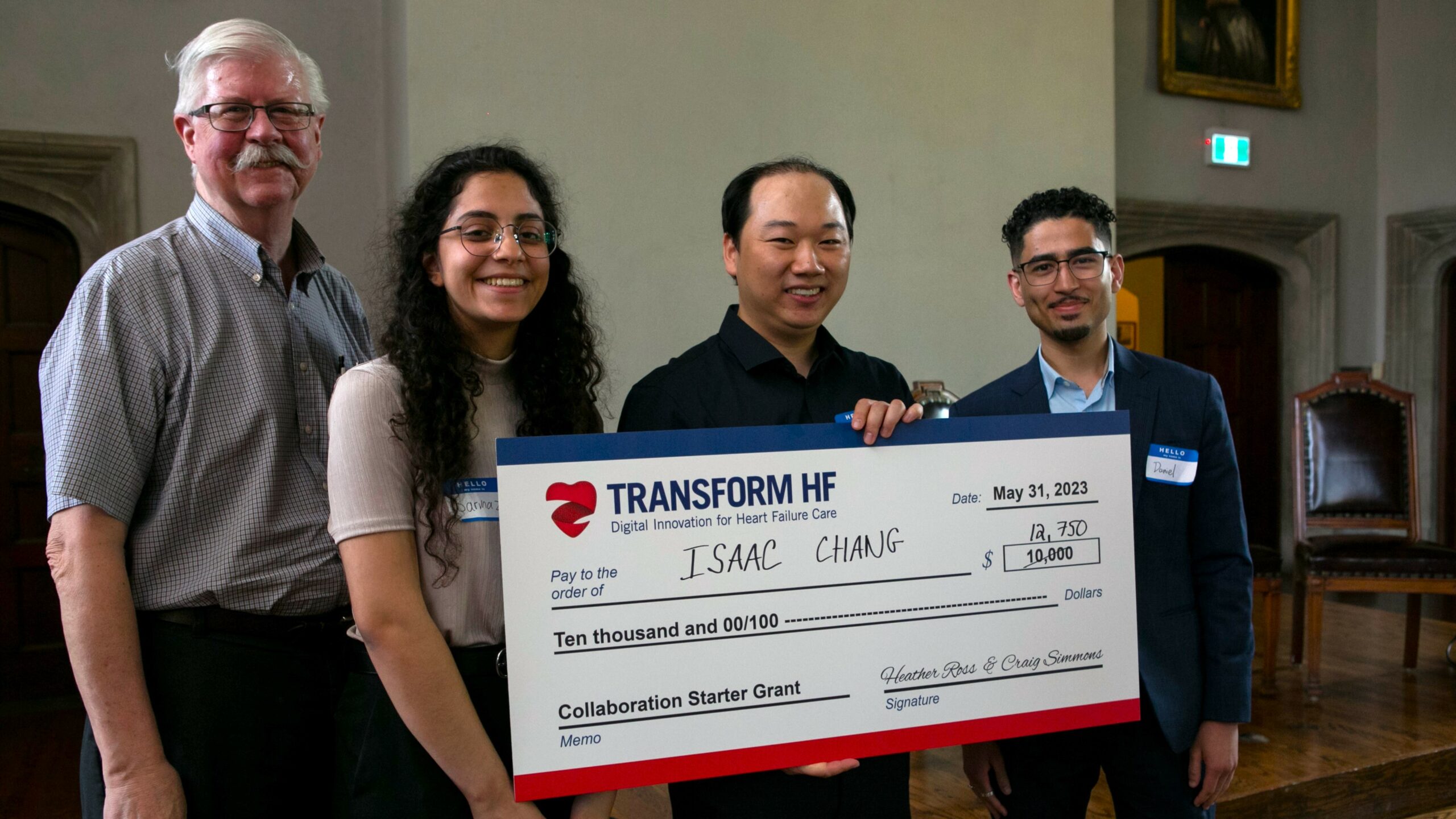
Isaac’s team took home first prize at TRANSFORM HF’s Spring Network Event’s pitch competition. L-R: Thom Benson, Sarvnaz Ale Mohammad, Isaac Chang, David Singh.

